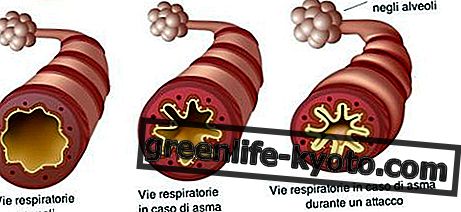
Canola oil, so called as an acronym for "CANadian Oil Low Acid", is also a form of the most well-known rapeseed oil.
Rapeseed oil is a vegetable oil that is produced from rapeseed, a bright yellow or white plant depending on the variety, belonging to the Brassicaceae family that grows in some hilly areas of the world.
Its food use was born in the middle of the nineteenth century, without obtaining great support because of studies on the effects on human health that relegated it to a lower quality product : the culprit seemed to be erucic acid, a cardiotoxic lipid, which level of health would have negative effects on growth and disorders affecting the liver as well as the heart .
The properties of canola oil according to the latest research
However, the aforementioned researches were subsequently disputed. Moreover, scholars have now succeeded in obtaining a variety of low rapeseed in erucic acid, called Canadian Brassica .
From this new genetically modified variety comes canola oil, a contraction of CANadian Oil Low Acid, a product mostly used in Canada and the United States.
Other recent research has highlighted the ability of canola oil to reduce the risk of contracting heart disease. This peculiarity seems to be underlined by the magazine Diabetes Care, a journal that deals with diabetes care, emphasizing that it is especially people with type 2 diabetes who benefit from this oil.
For them, taken and tested on a test group, a significant reduction in cardiovascular risk would have been monitored, following a diet supported by the intake of wholemeal bread and canola oil. Also from the canola oil there would also be help against the metabolic syndrome, discovered by a team at Penn State University led by Penny Kris-Etherton.
According to the results of this second research, the mono-unsaturated fatty acids of canola oil would have the effect of reducing abdominal fat and therefore the risk of metabolic syndrome . But is it all true? There are those who point out that the research and experiments carried out are still too few and too short to determine effective efficacy of the product with regard to certain pathologies.
Canola oil use
And the fact remains that not everyone likes canola oil. I don't like it especially because it is still a refined oil, extracted using heat, pressure and solvents, decolorized and deodorized. In the United States, where the oil in question is widely used, the debate is still on: some canola oil, but according to others, if it is good for the heart, it hurts elsewhere. Moreover, it would become rancid quickly.
In the end it is always a genetically modified oil, even if it is not bad, like other vegetable oils, to say that it is good for health is perhaps excessive . In Italy, where olive oil is still the favorite, there is still no trace of use of canola oil, only of the use of rapeseed oil in certain industrial cuisine, produced with vegetable margarine or fried food.













